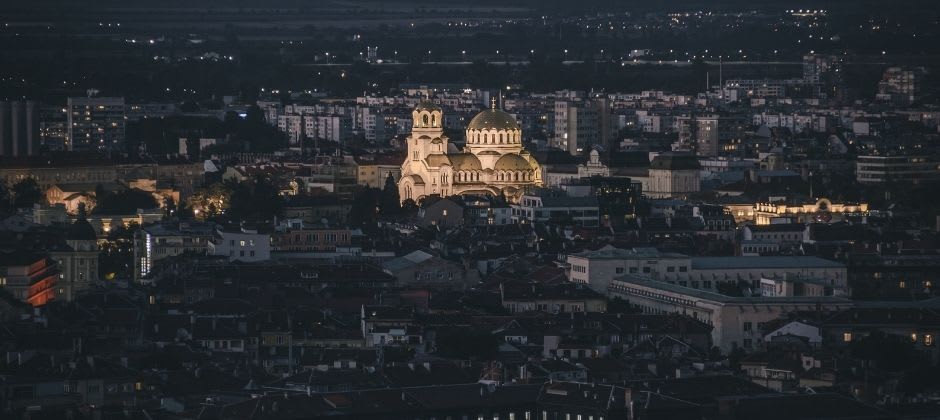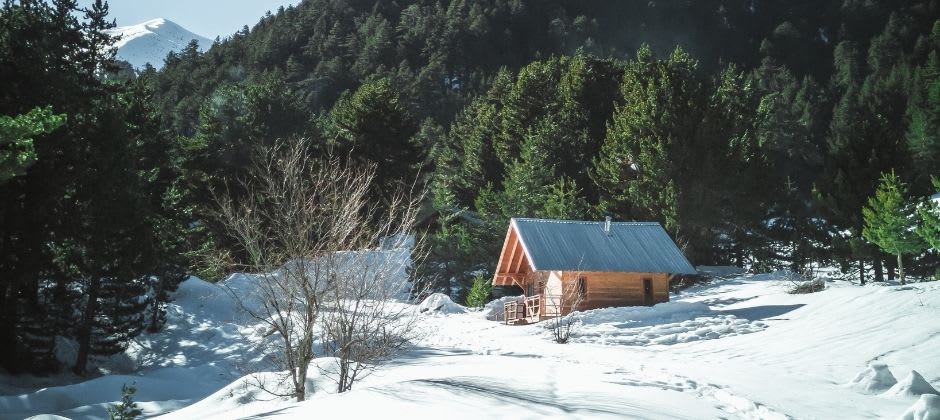Study in Bulgaria: Language & Culture
The official language of Bulgaria is Bulgarian. Bulgarian is written using Cyrillic script, the same alphabet that is used to write Russian. In fact, Bulgarian is actually the oldest recorded Slavic language. But that is only scratching the surface of Bulgaria.

The official language of Bulgaria is Bulgarian. Bulgarian is written using Cyrillic script, the same alphabet that is used to write Russian. In fact, Bulgarian is actually the oldest recorded Slavic language. Bulgarian has much in common with other Slavic languages like Serbian and Ukrainian, allowing you to expand your language abilities if you take to it.
The culture of Bulgaria is a mix of Slavic, Hellenic and Turkish. This is because of Bulgaria’s location: in the Balkans, bordering Greece and Turkey. This means that Bulgaria is home to food, traditions and architecture that are totally unique. Sofia showcases a lot of these unique customs and cultures, making it the perfect place to get a true taste of Bulgaria.
Another plus point of Bulgaria is its countryside. Bulgaria might not be a particularly large country, but it's diverse. From the farming plains in the west, to the wine valleys in the north, to the stony hills in the south, Bulgaria packs a lot in. The Black Sea coastline is also magnificent.
In fact, the coastline is becoming an increasingly large tourist draw. Varna and Burgas are ever more popular tourist destinations. With blue waters, white and golden sand beaches, hot weather and beach bars and resorts, it’s little wonder that Bulgaria is becoming a go-to sun, sea and sand destination.

Most international students visit the sea resorts during their time in Bulgaria. But remember the risk of heat stroke. You should take plenty of water and sunscreen with you. Another safety aspect is to do with crime. The rate of violent crime is no higher than elsewhere in Eastern Europe. However, pickpocketing does remain a problem, both in Sofia and beach areas. Take extra care on public transport and don’t leave your phone or wallet in plain sight. Corruption is also a problem in Bulgaria. If you’re asked to pay a bribe, you should say no, walk away and immediately report it.
Don’t let this alarm you. Bulgaria is still a safe place where you can enjoy a once-in-a-lifetime study abroad experience.
Study in Bulgaria
Bulgaria is an exciting place to study abroad for international students. With beaches, nightlife, a beautiful coastline and internship opportunities all in arm's reach. This section gives you an overview of what it's like to study abroad in Bulgaria.
Education in Bulgaria
Want to learn about how the higher education system works in Bulgaria? Ireland is an evermore popular destination for a variety of students, given its reasonable fees and good student scene. Take a minute to find out more about the structure of the education system in Bulgaria!
Student Visas
Do you need a visa to enter Bulgaria to study? Learn more about the student visa process, and what you need to enter the country, depending on your citizenship.
Housing & Living Costs
No matter where you study abroad, it’s important to create a budget in advance so that you’re prepared. Therefore, we’ve detailed average living and housing costs so that you can get a better idea of what you would be paying as a student in Bulgaria.
Tuition Fees & Scholarships
Tuition fees for degree programs in Bulgaria can vary. Both international and domestic students are expected to pay tuition fees in Bulgaria, but these fees can vary a lot. We've put together information on how this works, and on scholarships, in this section.
Application Process
Learn more about how to apply to Bulgarian schools in this section. You can find out what to do for undergraduate and postgraduate study.
Programs
Ready to look at education in Europe? Use our search engine to find and compare top programs in Europe today!

Author
The Keystone Team is comprised of experienced educators and advisors dedicated to providing valuable resources and advice to students all over the world.